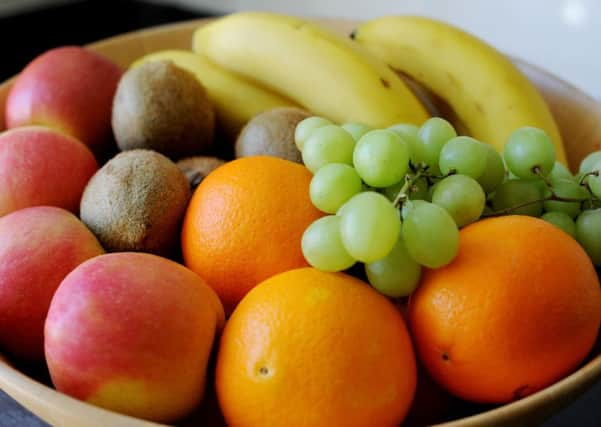Antioxidants in fruit boosts immunity in elderly


Scientists demonstrated how ageing sabotaged the thymus gland, weakening the immune system and putting the elderly at greater risk of infection.
But the irreversible damage could be reduced by the action of antioxidants such as vitamin C. Experiments showed that antioxidants – which are abundant in many fruits and vegetables – cut down the destruction wrought by a highly reactive by-product of normal metabolism.
Advertisement
Hide AdAdvertisement
Hide AdIn studies on mice, animals given vitamin C and another antioxidant used in human medicine experienced significantly less age-related deterioration of the thymus.
US lead scientist Dr Howard Petrie, from the Scripps Research Institute in San Diego, California, said: “The thymus ages more rapidly than any other tissue in the body, diminishing the ability of older individuals to respond to new immunologic challenges, including evolving pathogens and vaccines.
“We provide, for the first time, a mechanistic link between antioxidants and normal immune function, opening new avenues for potential treatments that could improve immune defences in the ageing population.”
The thymus is a small gland that lies behind the breastbone between the lungs. Its function is to manufacture T-cells, essential immune system cells in the front-line of the body’s defences against harmful foreign invaders and cancer.
From about the time of puberty onwards, the thymus rapidly shrinks and its T-cell generating ability diminishes.
The new research highlights the unique damaging effect hydrogen peroxide – best known as a bleaching agent but also a natural by-product of metabolism – has on the thymus.
Hydrogen peroxide is produced by all cells as a result of the process that converts food into energy using oxygen, but is highly destructive and can tear apart cell membranes and scramble DNA.
Antioxidants, some of which are produced naturally in the body, help to block the devastating effects of chemicals such as hydrogen peroxide.
Advertisement
Hide AdAdvertisement
Hide AdThe Scripps scientists found that one natural antioxidant, an enzyme called catalase, is especially important in the thymus.
As the organ aged, it became deficient in catalase, allowing the damage caused by hydrogen peroxide to go unchecked.
In genetically engineered mice with raised levels of the enzyme, the thymus was preserved as they aged. And the addition of two other antioxidants – vitamin C and the chemical n-acetylcysteine – to drinking water of normal mice also protected the thymus.
The scientists concluded: “We propose that irreversible thymic atrophy represents a conventional ageing process that is accelerated by catalase deficiency.”
The findings suggest that oxidation rather than hormones is chiefly to blame for age-related thymus damage.